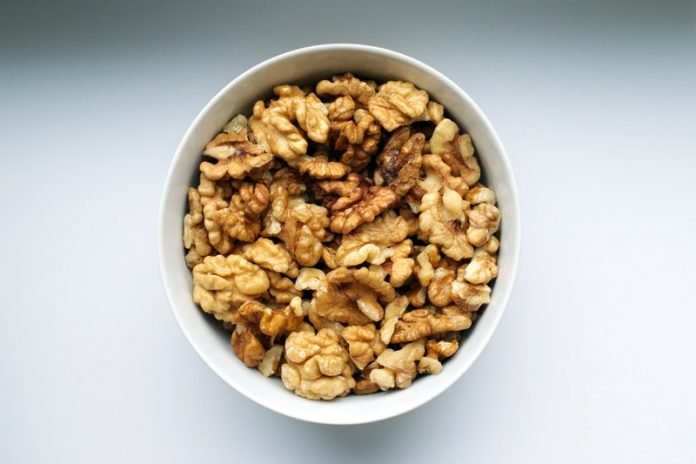
In a new study, researchers found that eating walnuts in a diet low in saturated fats may help lower central blood pressure.
They found the health benefits in people who have a high risk of heart disease.
The research was conducted by a team from Penn State University.
Central blood pressure is the pressure that is exerted on organs like the heart.
This blood pressure and blood pressure measured in the arm are both factors for a person’s risk of heart disease.
In the study, the team recruited 45 participants with overweight or obesity who were between the ages of 30 and 65.
Before the study, participants were placed on a “run-in” diet for two weeks. The diet mimics an average American diet.
Then the participants were received one of three study diets. All of the diets included less saturated fat than the run-in diet.
One diet included whole walnuts and two diets included the same amount of nutrients without walnuts. All participants followed each diet for six weeks.
The researchers found that while all three diets improved heart health, but the diet with whole walnuts provided the greatest benefits, including lower central diastolic blood pressure.
They explain that the benefits may be from a plant-based omega-3 or other bioactive components in walnuts. Because walnuts lowered central pressure, their risk of heart disease may have also decreased.
Currently, an average American diet has about 12% of calories from saturated fats.
It is important to replace some saturated fats from the diet with walnuts or vegetable oils to reduce the amount. The three diets in the study all had about 7%.
This can help reduce heart disease risk.
The study is the first to try to find which parts of the walnuts help support heart health.
The lead author of the study is Penny Kris-Etherton, Distinguished Professor of Nutrition at Penn State.
The study is published in the Journal of the American Heart Association.
Copyright © 2019 Knowridge Science Report. All rights reserved.



